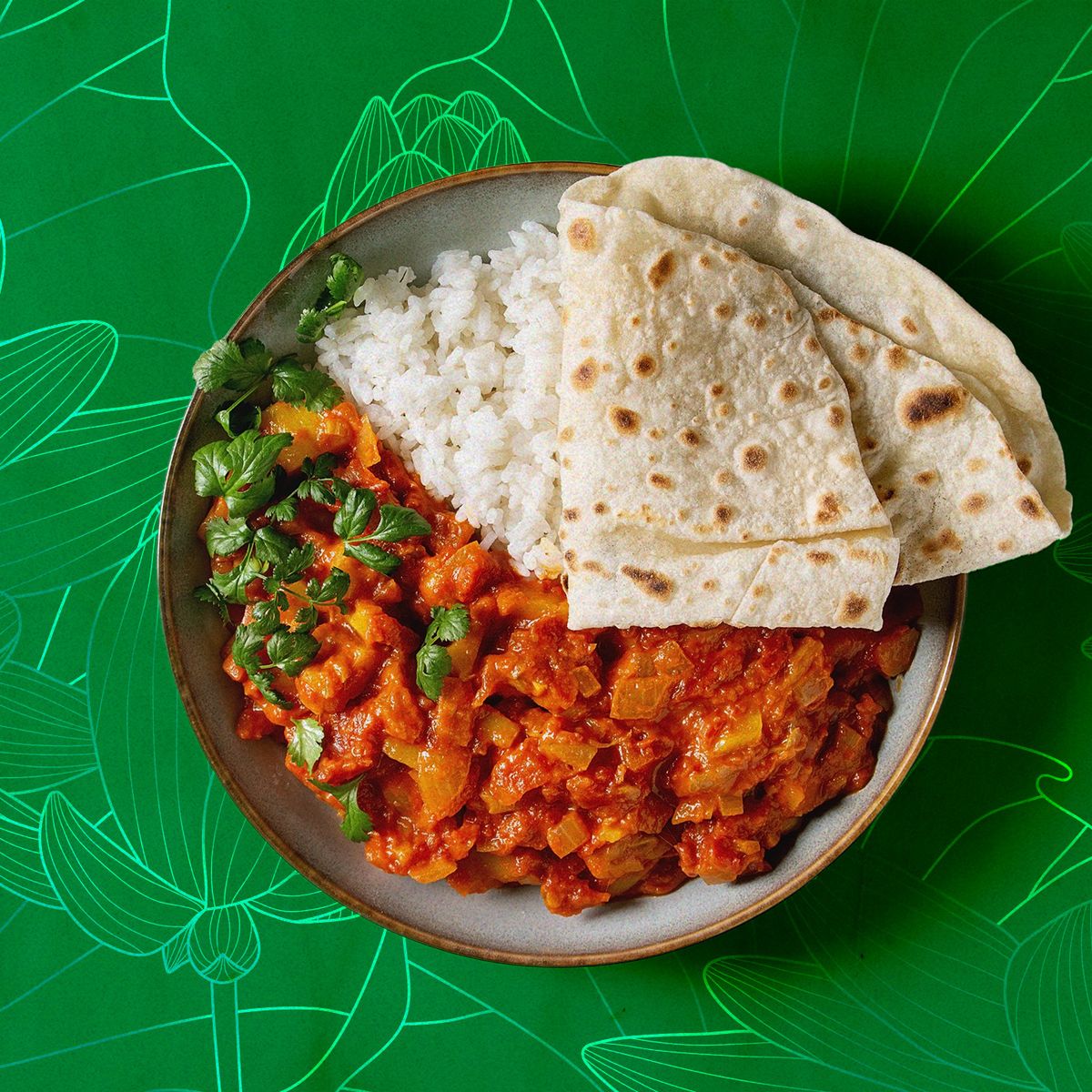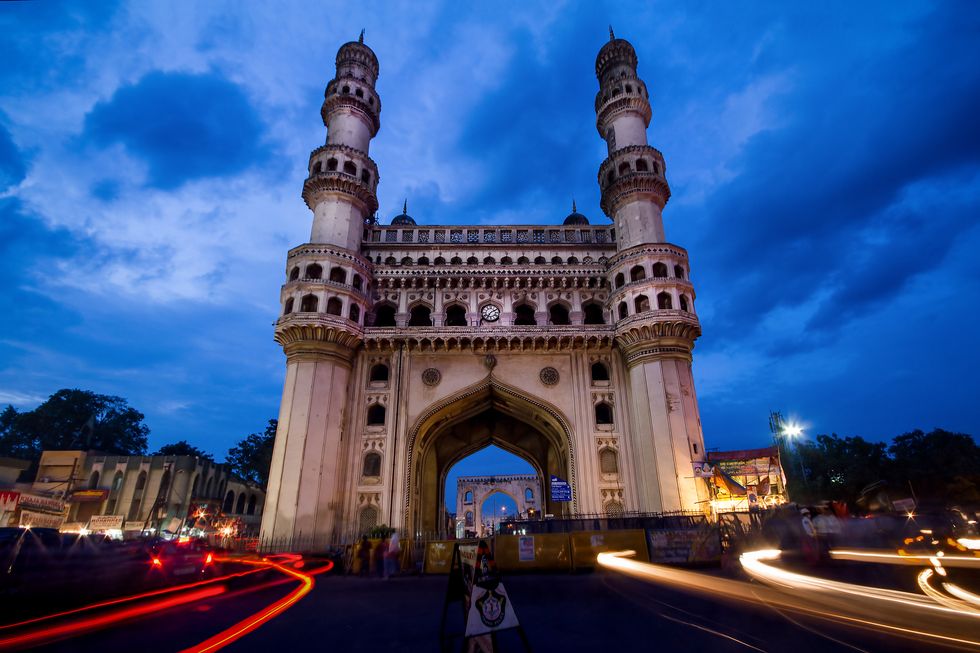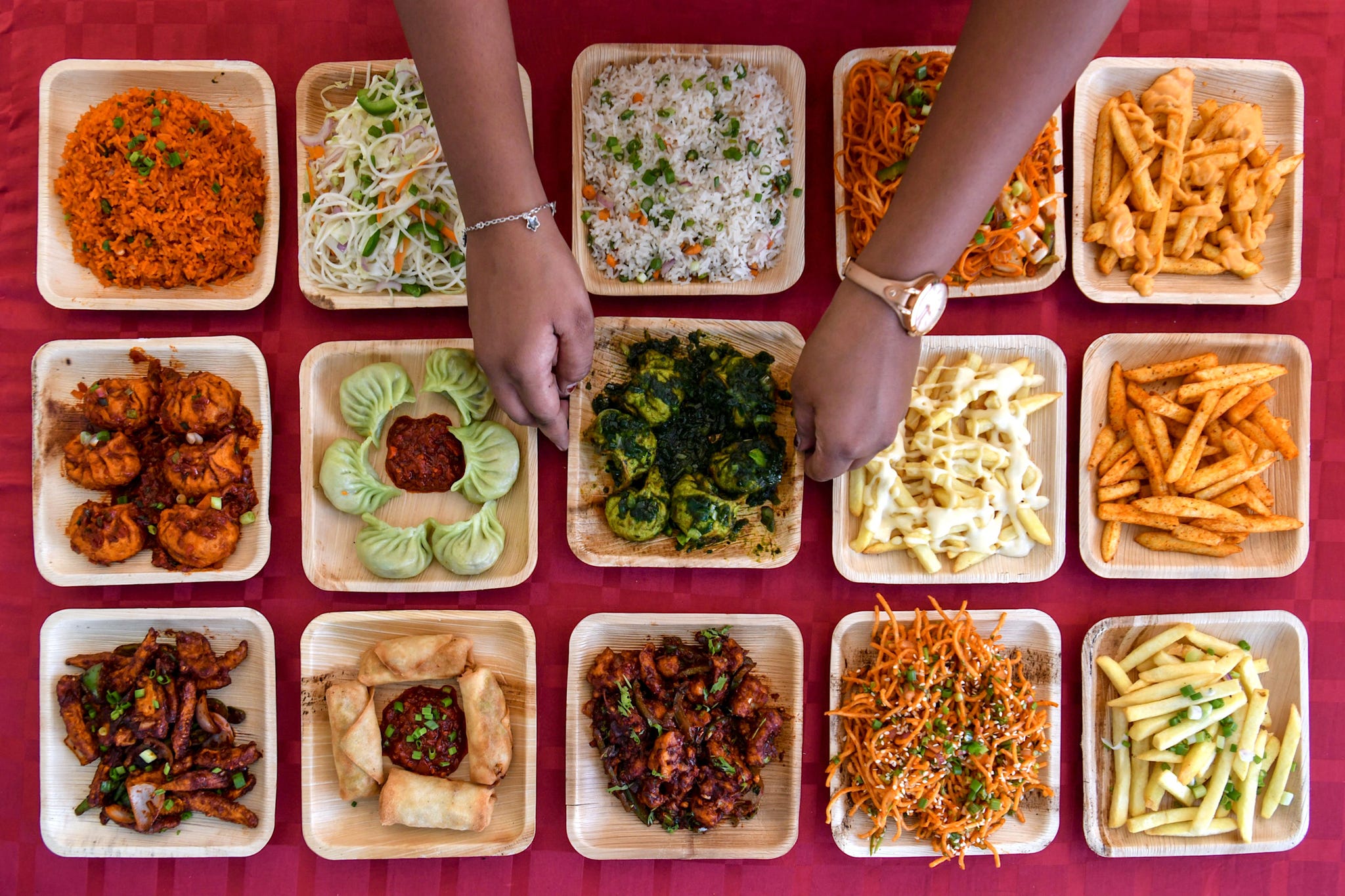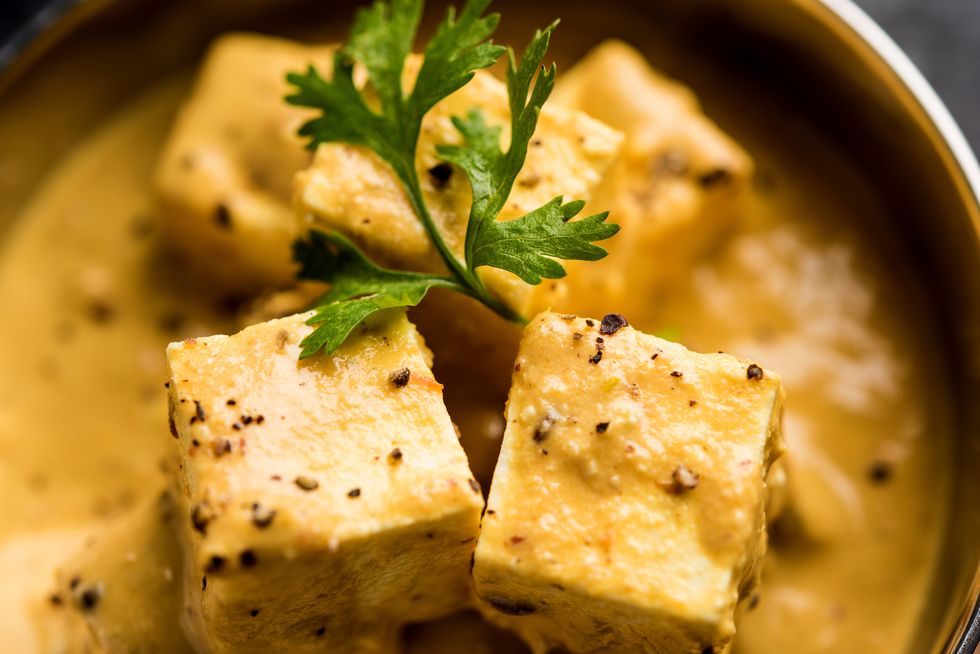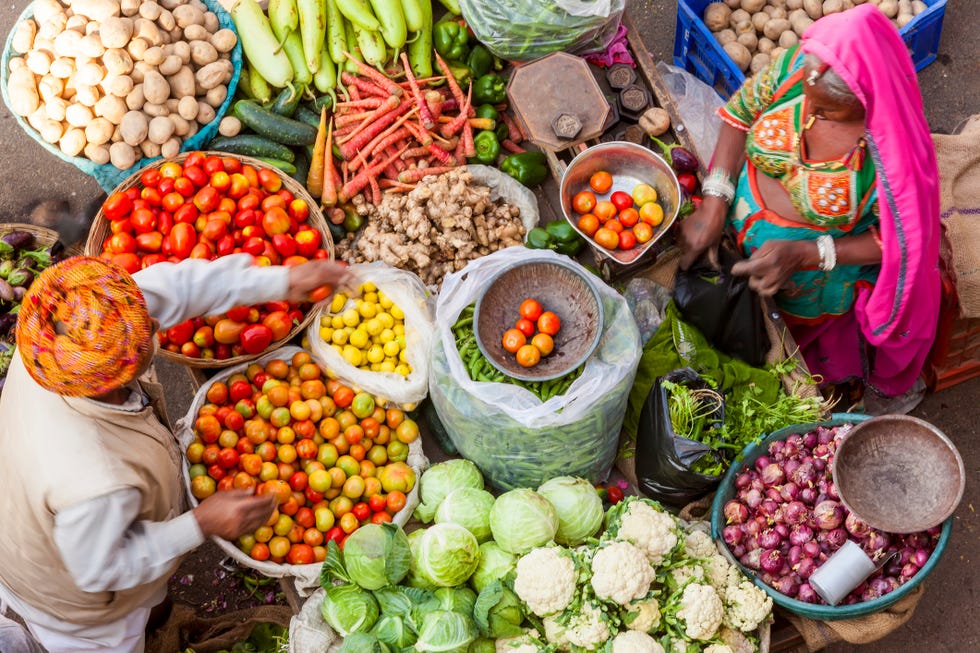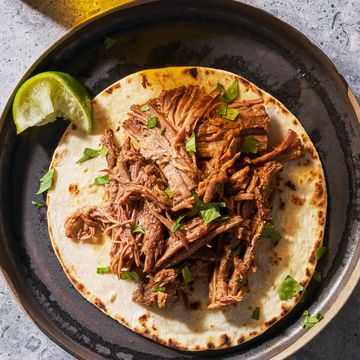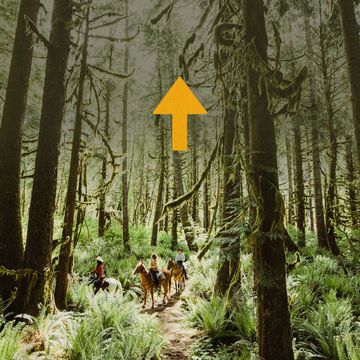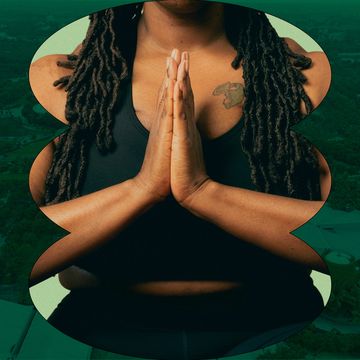Growing up as an American vegetarian in the 1990s means that I know what it’s like to be an outsider. Despite the growing interest in plant-based diets in recent years, mostly for ethical and health reasons, vegetarianism in the United States remains on the fringe. According to a 2018 Gallup poll, about 5 percent of Americans identify as vegetarian and 3 percent as vegan.
Despite our low numbers, most vegetarians I know make it work just fine. We research restaurants and menus before we go out, and many have become accomplished home chefs to navigate the otherwise limited options in conventional American food culture. And yes, we do eat protein. Thanks for asking.
There is one cultural cuisine, however, that we can always count on, and that’s Indian food. Indian restaurants in the U.S. have always been safe havens where we have more than two to three options. Some Indian restaurants are exclusively vegetarian, and those that aren’t can usually make any dish veg-friendly by subbing paneer (a type of fresh Indian cheese) for meat. Savoring each bite from a table covered with delectable dishes at a local Indian restaurant was part of the rhythm of my childhood, and it’s still important in my life today.
Lucky for me, I married into an Indian family. It was a decision of the heart rather than the stomach, but it has allowed me to explore Indian cuisine and culture in thought-provoking new ways. When my partner and I were preparing for my first visit to India last year, I was excited to experience a food culture that always felt more inclusive to me than the food culture in the U.S. I was totally ready to become an insider, someone who could appreciate vegetarian Indian food for all that it offered.
Once in India, I ate everything, from home-cooked curries, dals, and dosas to egg biryani at the best restaurants in Hyderabad. Whether it was served on the street or at fancy catered events, vegetarian food was plentiful and incredible. As we traveled between the north and south of India, I feasted at every opportunity. I even found deliciousness at American fast-food chains. I can confirm that a paneer tikka sandwich from Subway in India is far superior to my usual Veggie Delite® back home. It was so comforting to indulge in this part of my life that often felt very limited in the U.S.
Despite being full to bursting with some of the best food I had ever eaten, there was a catch. It seemed like I was confusing people. Servers looked at me with concern as I ordered vegetarian dishes, often recommending meat dishes instead. Introductions to new family members always included a caveat — she’s a vegetarian! — that typically elicited a small shock of surprise.
My sister-in-law forgot several times to plan a vegetarian option for me, simply because I am an American, and all Americans eat meat, right? “People in India just assume that everyone outside is non-vegetarian,” she told me. “When you hear that someone is a vegetarian, it’s like, ‘Wow, this is very different and unexpected.’”
I didn’t get it. Sure, I’m not Indian, but why should I be thought of so differently from the approximately two-fifths of the Indian population who identify as vegetarian, according to the Pew Research Center? In order to understand my own place in the vegetarian culture in India, I sought out experts to understand how eating habits are reflected in Indian history, religions, and caste systems.
I started by asking my in-laws questions and uncovered some interesting discrepancies in the family’s eating habits. Despite being raised vegetarian by his mother, my partner as well as my sister-in-law and father-in-law all eat meat regularly when they go out. Many aunts, uncles, cousins, and extended family also eat meat. Some opt out of beef for religious reasons, and others eat just about everything. It turned out I was one of the few purely vegetarian people in the family.
The line between vegetarianism and carnivorism started to blur in their family years ago, according to my sister-in-law. “My grandfather was a very strict vegetarian until he had pleurisy and had to eat more protein,” she said. “He started eating eggs for protein, and that was how eggs were introduced into our family, who had always been vegetarian.”
This diverse approach to eating within our own family is a reminder for me that India is not a monolith. Similar to how many Americans assume that Bollywood represents the entire Indian film industry, eating habits in India are equally wide ranging. They are regional, based on a variety of religions, and are different from person to person and family to family. India, as with most places, can never be synthesized or reduced to one concept.
Runjhun Misra, a physician and content creator, immigrated to the U.S. from India as a child with her parents. Food was always connected to her identity. “I feel like food is part of everyone’s cultural heritage,” she says. “Whatever culture they come from, that’s what brings people together. That’s what you remember. Taste and smell are some of our strongest senses that bring back good memories of love or comfort.”
With more than 210,000 followers on Instagram, Misra creates content about vegetarian cooking, including Indian flavors and fusions, as well as other lifestyle content. As an internal medicine physician, she prioritizes health-promoting diets and behaviors. For her, vegetarianism works from a cultural, ethical, and health perspective.
Unfortunately, Misra has also experienced online toxicity for her approach to vegetarianism. “I’ll have these young people from India on my platform calling me all kinds of names and sending me hate messages because I call myself a vegetarian, but I eat eggs,” she says. “I’ve actually done so many educational Reels about it because they keep saying, ‘This is why you’re called the wicked vegetarian because you’re wicked!’”
The harsh and controlling approach to Indian vegetarianism that Misra experiences online points to a larger, more problematic issue. Dr. Christina Sathyamala, a public health physician, epidemiologist, and visiting professor at Erasmus University in Rotterdam, Netherlands, has researched the ways that vegetarianism has become more about political and caste identity than it is about health or spiritual devotion.
“In India, food culture is a reflection of the Hindu caste system and therefore embodies the violence inherent in the caste structure and hierarchy,” Sathyamala explains, adding that casteism “enshrines the notion that people are not born equal and can never be made equal.” Sathyamala concludes that Hindu nationalism has empowered the minority group of high-caste vegetarians to control, and sometimes even enact violence against, larger groups of people based on what they eat and do not eat.
When I recognize the profound implications of what it means to be a vegetarian in India, it’s no wonder that many Americans — including me — often miss the point. While we are pursuing our own personal American dreams, we should be aware that what we eat can be seen as a political statement. The revelation offered me clarity on those Indian servers with quizzical expressions about my approach.
Vegetarianism in India is nuanced. I’m still learning to embrace my love for and proximity to Indian people, food, and culture while knowing that I’ll always be on the outside. For me, there are parts of the vegetarian experience to enjoy and share with my Indian and American friends alike — and there are other issues that do not directly involve me. Ultimately, I believe creating more space for everyone who wants to enjoy food according to their personal convictions and preferences should always be the goal. And I’d love to discuss it further over a fragrant bowl of khichdi.
Jordan Arellano is a Memphis-based writer who has contributed to the Daily Memphian, Insider, Yes! Magazine, and Edible Memphis.
Get Shondaland directly in your inbox: SUBSCRIBE TODAY
